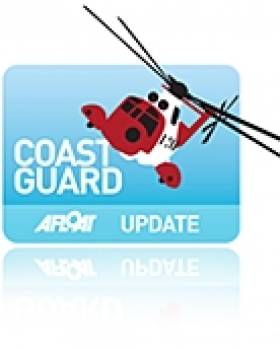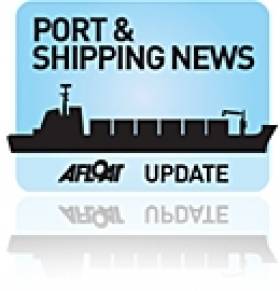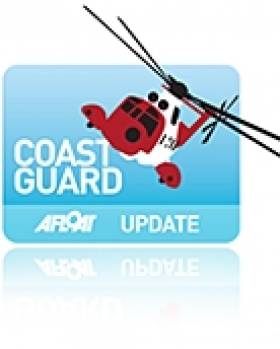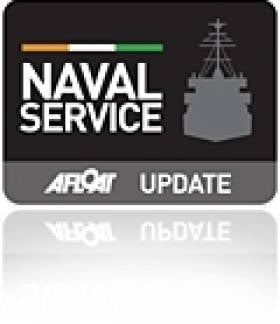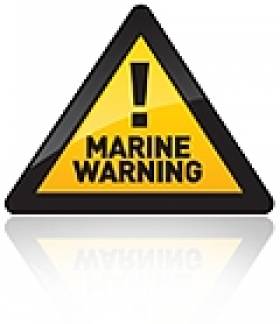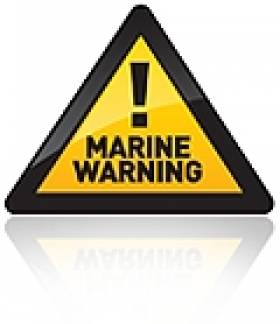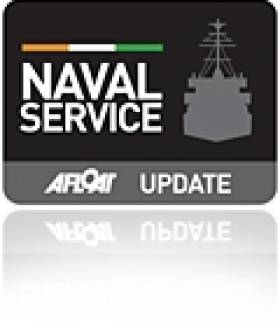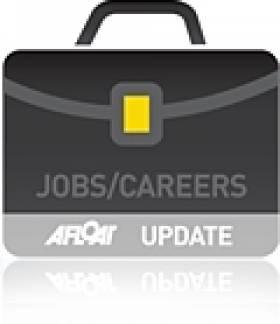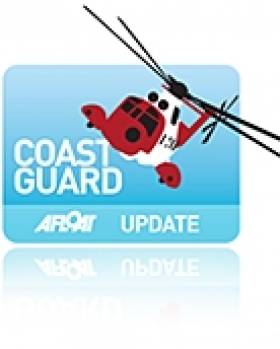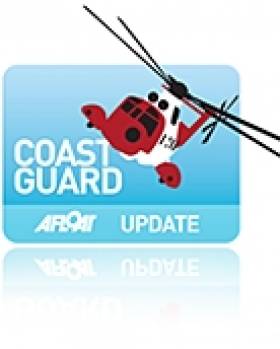Displaying items by tag: Air Corps
New Helicopter for Irish Coast Guard is Completed
#COASTGUARD - Sikorsky has completed production of a new S-92 helicopter for the Irish Coast Guard under the rescue service's €500 million deal with CHC Ireland.
The US-based helicopter firm and CHC formalised the purchase on Wednesday (21 December) with Irish Coast Guard director Chris Reynolds during a hand-over ceremony at the S-92 commercial helicopter assembly facility in Coatesville, Pennsylvania.
Equipped for dedicated search and rescue (SAR) operations, the helicopter will provide coverage for deep Atlantic Ocean missions, service Ireland's offshore islands and provide rescue cover on the west coast from Cork to Galway.
The new aircraft will be based at Shannon and will replace the current coastguard SAR helicopter, a Sikorsky S-61, which has given 20 years of unbroken service.
According to Sikorsky, the S-92 is equipped with advanced systems and hardware, including an automated flight control system that enables the pilot to fly pre-programmed search patterns and perform delicate hover manoeuvres; a wireless intercom allowing a rescue swimmer to communicate with the crew; radio transceivers to communicate with ships and rescue services; a weather radar and infrared sensor; and a digital video system to record rescues.
Reynolds said the new helicopter - which joins four second-hand machines on a 10-year lease - represents a stepped improvement in Ireland's ability to care for and service its seagoing, coastal and island communities.
"I am very happy that the Coast Guard will operate what I consider to be the leading SAR helicopter in the world," he added.
As reported earlier this year on Afloat.ie, the new chopper is part of a deal that raised questions from a Fine Gael TD over allegations that a competing tender did not have a "good reputation".
Fergus O'Dowd questioning the contract with CHC Ireland after receiving documents in which Chris Reynolds said the Air Corps – whose helicopters are supplied by AgustaWestland - were uneqipped for the role and that no cost saving would be made if they took on the service.
Cracks in Hull Force Tanker Re-Routing to Belfast
#SHIPPING - The Irish Times reports that a tanker carrying hazardous cargo has been allowed to berth at Belfast Port after it reported a cracked hull off the north-west coast.
The 228-metre Germar Companion, which is is carrying 54,000 tonnes of vacuum gas oil, was on route from Rotterdam to New York when its crew discovered cracking in its upper deck some 25 miles off Tory Island.
The Air Corps and Naval Service were stood down after the cargo ship was granted permission to berth at Belfast, where its hull will be inspected.
Search for Yacht Missing Between Bermuda and Ireland
An air and sea search operation is underway for a yacht missing en route from Bermuda to Ireland, The Irish Times reports.
The Golden Eagle has been out of contact since leaving port on 21 August. It was due to arrive with its two-man crew - a 69-year-old Norwegian and a 60-year-old New Zealander - at Crookhaven in West Cork last Thursday.
The Irish Coast Guard told the Press Association said that the Naval Service and Air Corps are involved in the search off the south west coast, and ships in the mid-Atlantic have also been asked to try to contact the yacht.
The yacht is described as being 9.8m (32ft) long, white and with a blue trim on the side.
The operation was spearheaded by the ARW with the support of a Naval Service coastal patrol vessel (CPV) and also Air Corps helicopters. High-speed tactical assault craft with ARW teams on board conducted manoeuvres while air-borne teams fast-roped from helicopters onto the deck of the Stena Adventurer. To see photos of the ARW team in action click HERE.
The exercise was designed to enhance the capacity of the Defence Forces to provide the State with a highly specialised maritime armed intervention capability.
Last month the Naval Service conducted close quarter manoeuvres in 'Operation Quixote' off the south-west coast. The exercise involved the entire naval fleet except for the flagship LE Eithne, which performed in gunnery practice, simulated air attacks from the Air Corps and armed naval boarding parties.
Warning To The Public - October 2011
On Monday 10th October 2011 from 09.00hrs to 18.00hrs
At GORMANSTON, CO. MEATH
IT IS DANGEROUS FOR PERSONS, SHIPPING, LIVESTOCK OR AIRCRAFT ETC., TO BE WITHIN THE DANGER AREA WHILE FIRING IS IN PROGRESS.
The DANGER AREA comprises the lands of GORMANSTON CAMP and the air and sea area contained within a circle having a radius of 3NM (5.4KM) centred on GORMANSTON CAMP with an additional area contained within the segment centred on GORMANSTON CAMP and bearing 015° T, through MOSNEY RAILWAY STATION and 106° T through GORMANSTON RAILWAY STATION seaward for the distance of 10NM (18.5 KM) The DANGER AREA extends from SEA LEVEL to a height of 12,000ft.
RED FLAGS will be flown at BEN HEAD and GORMANSTON RAILWAY STATION when exercises are taking place.
OBJECTS found on the RANGES may be HIGHLY DANGEROUS and the PUBLIC ARE WARNED of the risk of handling or interfering with such objects.
NO REWARD of any kind will be made for the finding of objects of a military nature on the ranges.
MICHAEL HOWARD
SECRETARY GENERAL
DEPARTMENT OF DEFENCE
Warning to the Public
WARNING TO THE PUBLIC AIR CORPS FIRING EXERCISES AND AIR DEFENCE ARTILLERY FIRING EXERCISES
From Tuesday 14th June to Saturday 18th June 2011 (inclusive) From Monday 20th June to Saturday 25th June 2011 (inclusive) From Monday 27th June to Friday 1st July 2011 (inclusive) Daily from 09.00hrs to 17.30hrs
At GORMANSTON, CO. MEATH IT IS DANGEROUS FOR PERSONS, SHIPPING, LIVESTOCK OR AIRCRAFT ETC., TO BE WITHIN THE DANGER AREA WHILE FIRING IS IN PROGRESS.
The DANGER AREA comprises the lands of GORMANSTON CAMP and the air and sea area contained within a circle having a radius of 3NM (5.4KM) centred on GORMANSTON CAMP with an additional area contained within the segment centred on GORMANSTON CAMP and bearing 015° T, through MOSNEY RAILWAY STATION and 106° T, through GORMANSTON RAILWAY STATION seaward for the distance of 10NM (18.5 KM) The DANGER AREA extends from SEA LEVEL to a height of 7,000ft.
RED FLAGS will be flown at BEN HEAD and GORMANSTON RAILWAY STATION when exercises are taking place.
OBJECTS found on the RANGES may be HIGHLY DANGEROUS and the PUBLIC ARE WARNED of the risk of handling or interfering with such objects.
NO REWARD of any kind will be made for the finding of objects of a military nature on the ranges.
MICHAEL HOWARD
SECRETARY GENERAL
DEPARTMENT OF DEFENCE
Increased Naval Presence for Queen’s Visit
The most modern naval vessel of the eight-strong fleet the LÉ Niamh (P52) is an offshore patrol vessel (OPV) which is equipped with a bow-mounted 76mm gun. To see the crew undertake exercise-drills of the gun, watch the video below.
Officer Cadetships in the Naval Service
The positions are Army Officers, Air Corps Officers (Pilot) and Naval Service Officers (Operations Officer or Engineering Officer). For further information including salary scale logon to www.military.ie/careers/officer
Applications for the 2011 Officer Cadet Competition are only being accepted online at www.military.ie and only from candidates who meet the minimum eligibility qualifications. Noting the closing date is 20 March 2011.
Coast Guard Hits Out Over Search & Rescue Deal Reports
The Irish Coast Guard (IRCG) has lashed out over newspaper articles on the recent €500m deal with CHC Ireland to provide search and rescue services.
The it was recently reported in an Irish newspaper that Fine Gael TD Fergus O'Dowd called for an investigation into the deal. This followed a previous article in the same publication which claimed proposals by the Air Corps to provide the same service at a lower rate were rejected on the grounds that its main helicopter did not have a "good reputation".
But IRCG director Chris Reynolds has hit out at the newspaper for ignoring its clarifications over the CHC Ireland contract.
In correspondence seen by Afloat.ie, Reynolds answered questions from the paper regarding the nature of the deal.
Among them he explained that the invitation to tender was publicly advertised and open, but that the then Minister of Defence had made a policy decision in 2004 to remove the Air Corps from search and rescue services due to "operational difficulties" and precluded them as an option.
Reynolds emphasised that it was a Department of Defence directive that the deal be "100% civilian".
He also disputed any link between the CHC Ireland deal and one made by its parent company in the UK, which has been called into question over perceived irregularities.
Meanwhile, Afloat.ie has seen correspondence from CHC Ireland to former Minister for Transport Pat Carey assuring that the cancelling of the UK deal has no bearing on the provision of its services to the Irish Coast Guard.
Search and Rescue Deal Under Question
The Irish Coast Guard's recent €500m deal with CHC Ireland to provide search and rescue services should be investigated, a Fine Gael TD has urged.
According to the Irish Independent, Fergus O'Dowd is questioning the deal after receiving documents under the Freedom of Information act in which the head of the Irish Coast Guard said the Air Corps were uneqipped for the role and no cost saving would be made if they took on the service.
As previously reported on Afloat.ie, the Air Corps' helicopter supplier AgustaWestland strongly disputed allegations that its helicopters did not have a "good reputation".
The contract will see CHC Ireland provide four helicopters (plus one backup) across the country on a 10-year lease. It is understood that this will include one new Sikorsky S-92 helicopters and four second-hand machines from the UK.
Meanwhile, controversy has arisen regarding a similar deal in the UK with a consortium that includes CHC Ireland's parent firm.
The British government has abandoned the procurement process over claims of irregularities in the bidding process of the deal which went to Soteria, a consortium including CHC, Sikorsky and French defence group Thales.
The Irish Independent has more on the story HERE.



























